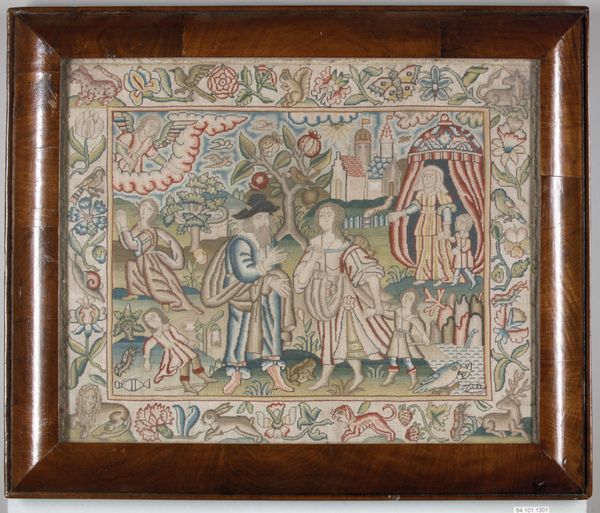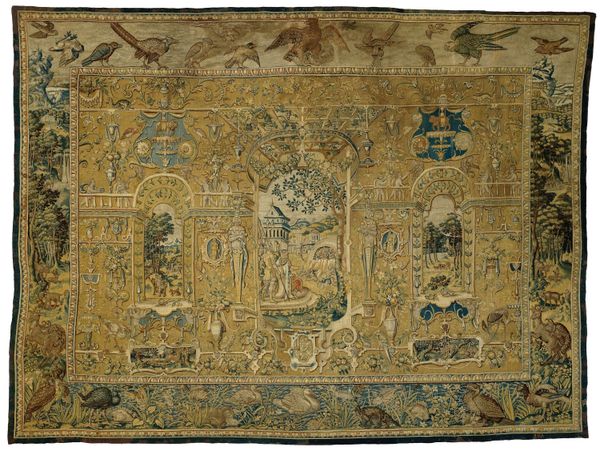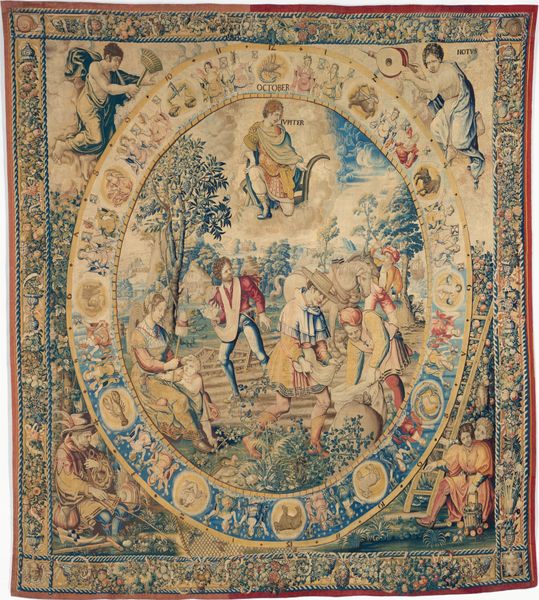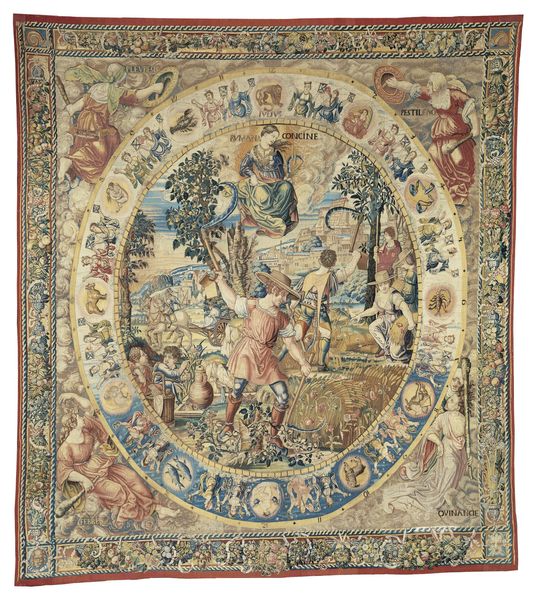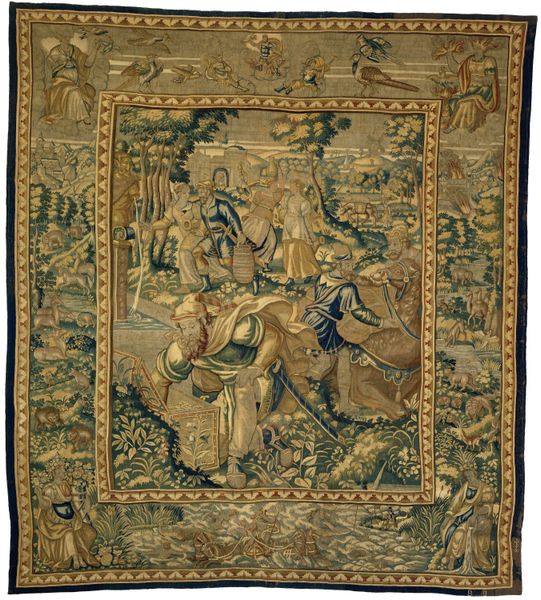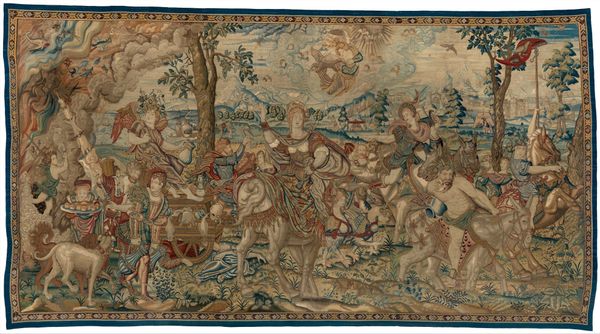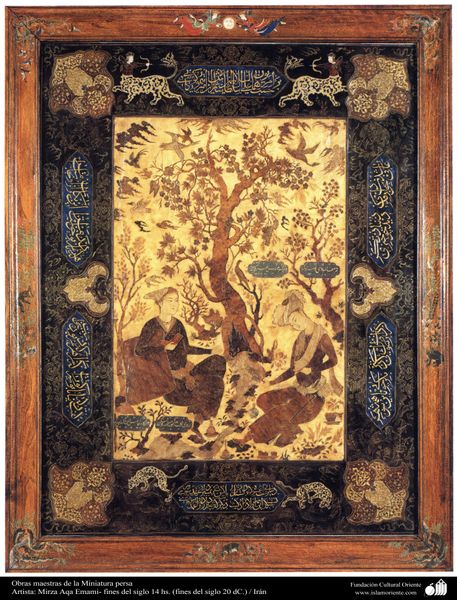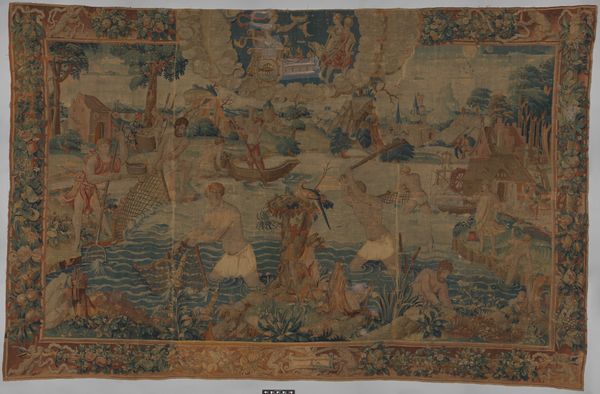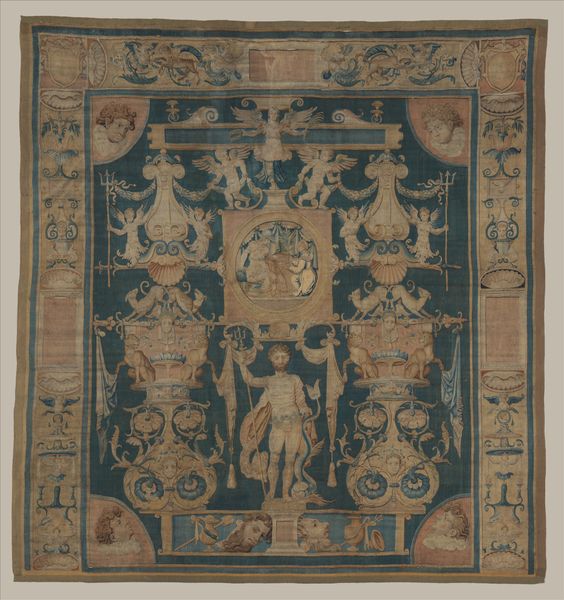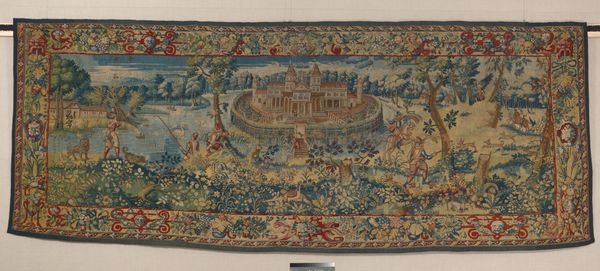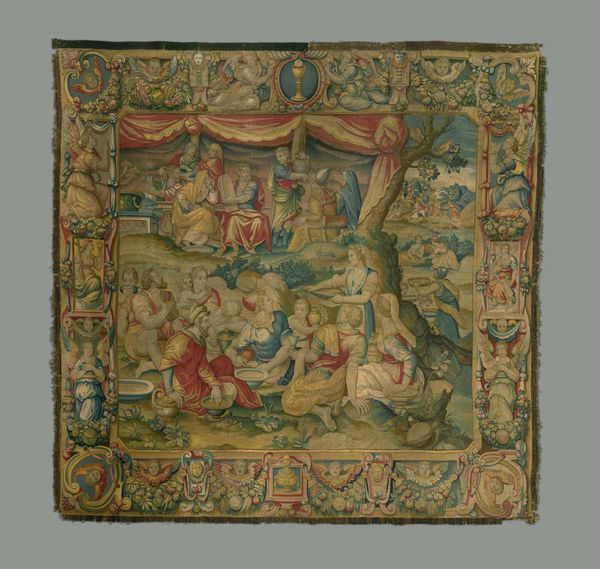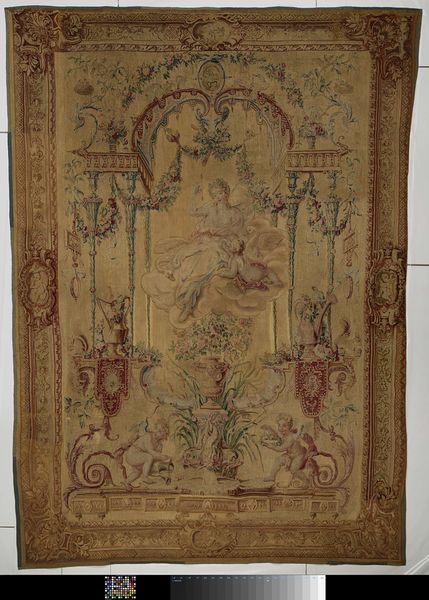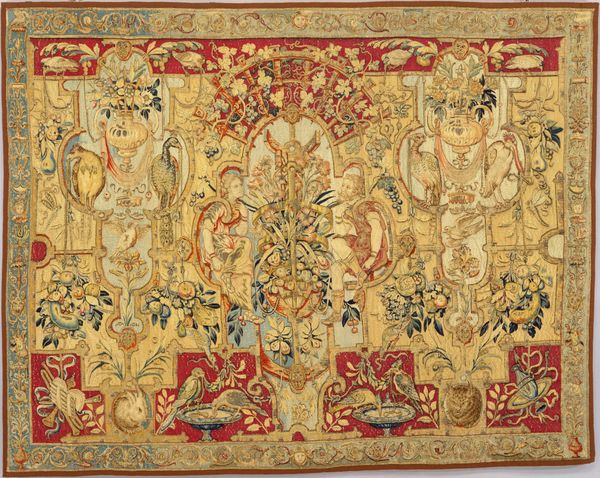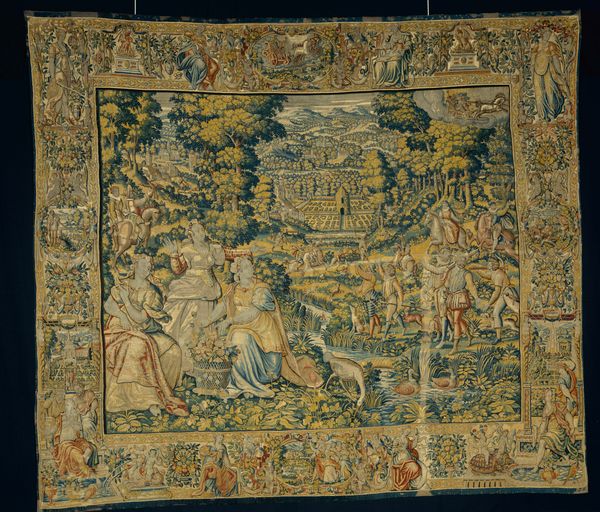
textile, engraving
#
narrative-art
#
bird
#
textile
#
figuration
#
text
#
folk-art
#
northern-renaissance
#
decorative-art
#
engraving
Dimensions: H. 11 3/4 x W. 15 1/2 inches (29.8 x 39.4 cm); Framed: H. 16 3/4 x W. 20 1/2 x D. 1 1/2 (47.0 x 52.1 cm x 3.8 cm)
Copyright: Public Domain
This embroidery, dating from around 1620, and attributed to Crispijn de Passe the Younger, depicts the classical myth of Meleager and Atalanta. It is worked in silk and metal thread on a linen ground. Embroidery like this was typically a product of female labor, a demonstration of skill and refinement, and a signifier of status, indicating access to materials and leisure time. The imagery itself - drawn from classical mythology - would also have been a mark of erudition. Looking closely, you can appreciate the textures achieved through the layering of different stitches, giving depth to the figures and the landscape. The gleam of the metal thread would have caught the light, adding another dimension to the composition. Consider the time and labor involved in creating such a piece. It's a reminder that even seemingly decorative objects can be rich with social meaning, challenging our assumptions about the hierarchy of art forms.
Comments
No comments
Be the first to comment and join the conversation on the ultimate creative platform.
